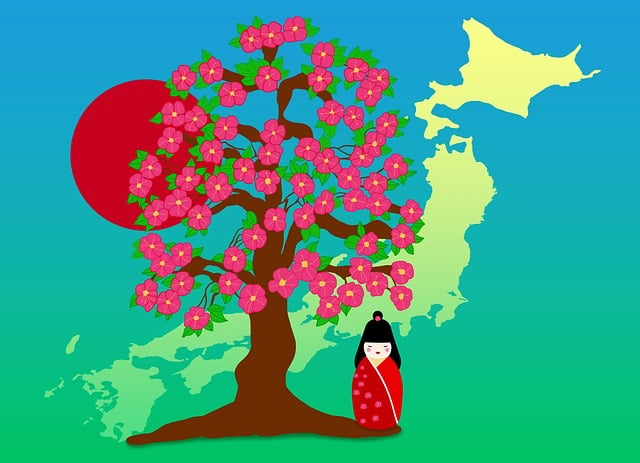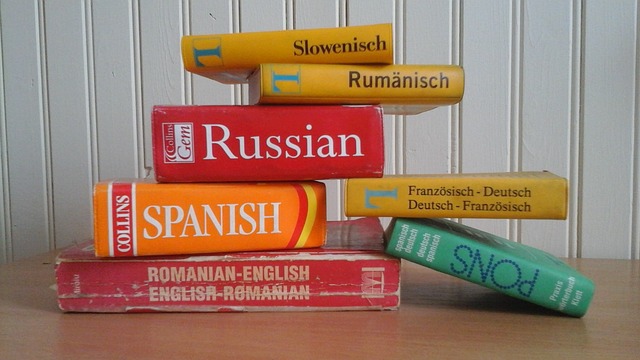Rapid Translate Team
Japanese translators are in high demand due to Japan’s influence on gaming, technology, and media globally. While this career path can be fulfilling and rewarding, it involves a mix of skills and special training. You must first learn how to become a Japanese translator.
This blog post provides a step-by-step guide to begin your career as a Japanese language translator. Read to the end to get all the necessary information!

Table of Contents
How To Become a Japanese Translator in 7 Steps
Becoming a Japanese translator is a big responsibility. Fluency in the language isn’t enough; you must also have other qualities. We’ve provided seven easy steps to help you begin a translator career.
Step 1: Become Proficient in Japanese Language
The first step to becoming a translator is to learn the Japanese language through:
- Formal education: Enroll in a formal educational program to get a foundation in Japanese language. Enroll in colleges that offer Japanese language, linguistics, or translation courses.
- Self-study: You can enroll in various online courses and apps like Coursera, Duolingo, or WaniKani to learn Japanese Kanji. There are also textbooks and grammar guides you can use.
- Immersion: You can deeply understand the language through Japanese art and games. Watch Japanese movies, read manga, listen to music or podcasts, and follow Japanese blogs. You can engage native speakers through forums or travel to interact with Japanese people.
Furthermore, you can aim to reach at least an advanced level in the Japanese language proficiency test (JLPT).
Step 2: Understand the Japanese Culture
Japanese culture is a complex system with deep etiquette and communication styles. Hence, you must immerse yourself in Japanese media, history, and literature to understand it.
Another way is to spend time living among Japanese people to experience the culture firsthand.
Step 3: Develop Translation Skills
You must develop the right skills to become a Japanese translator. Here’s how:
- Translation courses: Enroll in Japanese translation programs to know the ideal ethics, methods, and tools.
- Practice: Start translating simple texts like short stories or articles between Japanese and your native language. Once you’ve mastered these, proceed to more complex materials like literary works and legal documents.
- Expertise in CAT tools: To increase efficiency, you’ll need to master translation software like the Computer-Assisted Translation (CAT) tool.
- Specialize: Choose a specific field to focus your translation skills and master relevant terms in the field.
Step 4: Get Certified
Getting a translation certification will boost your credibility and chances of getting Japanese translation jobs. You can get one from recognized bodies like the Japan Translation Federation (JTF) or the American Translator Association (ATA).
Step 5: Gain Real Life Experience
Experience is a valuable key in the translation industry. Here’s how you can gain real-life experience:
- Volunteer: Volunteer for community services or NGOs that need translation services to gain valuable experience.
- Internships: Apply to professional translation agencies or Japanese companies for a heads-up on real-world translation demands.
- Freelancing: Consider becoming a freelance translator to gain different experience, polish your skills, and build a solid client base.
Step 6: Start Working as a Japanese Translator
You can start your translator career as a freelancer or apply to translation companies. Another option is to apply for in-house translator positions in Japanese companies, such as government agencies or multinational companies.
Step 7: Continue Improving
- Keep updating your skills and knowledge because the translation field keeps evolving. You can do this by:
- Attending translation workshops and webinars.
- Keeping track of translation trends and new translation tools to make your work easier.
- Engaging with other translators in a community.
- Taking advanced courses in your specific field.
- Working on improving through customer feedback.

How To Become a Certified Japanese Translator
Learning how to become a Japanese translator is key to beginning a professional career. However, certification boosts your reputation and helps you stand out. You don’t need much information to understand how to become a certified Japanese translator.
All you need is to gain certification from a professional translation body. As mentioned before, the ATA and JTF offer globally recognized certification. Their certification exams check your translation skills and language proficiency. You can also take the JLPT to prove your fluency in the Japanese language.
Although it is not a certification exam, getting N1 or N2 levels can boost your translator credentials. This would enable you to get the perfect translation between Japanese and English.

How To Become a Translator Without a Degree
A degree gives you an edge over competitors in the translation industry. However, gaining a degree isn’t possible for some people.
But don’t worry; you can still achieve your dream of being a translator without one. We’ve provided the steps to guide you on how to become a translator without a degree.
Here’s how in six easy steps:
- Gain fluency in a second language and learn the cultural nuances by studying, getting a tutor, or joining classes.
- Take courses in translation to brush up your skills and boost your career as a translator. You can enroll in online courses for a more convenient study process.
- Gain experience by volunteering or interning at various companies, charities, and schools.
- Become a freelance translator to begin your career in the translation industry. This way, you can build a solid customer base and gain the right connection.
- Attend workshops and conferences to develop your skills as a professional translator.
- Gain relevant certifications from recognized bodies to increase your credibility and chances of getting a translation job.
The steps above are useful guides explaining how to become a Japanese translator, regardless of your credentials.

How Long Did It Take to Become a Japanese Translator?
Becoming an expert-certified Japanese translator could take five to eight years. This duration varies depending on your starting point, target level of proficiency, and specific certification requirements in your field.
Consider these factors to determine how long it would take to become a Japanese translator.
It could take two to four years if you already have a solid foundation in Japanese. Here’s a breakdown of how you’ll spend your time:
- Language proficiency: It typically takes two to three years to move from beginner to intermediate level. After this, it would take one to two years to reach advanced proficiency.
- Translation training: Depending on the program, translation courses or degrees take six months to two years to complete. Completing them through self-study may take one to two years of consistent practice.
- Certification: Preparing for certification exams can take several months. In addition, it is ideal to have about two to three years of translation experience before this.

FAQ
After going through the steps of becoming a Japanese translator, let us answer your questions.
What qualifications do I need to be a Japanese translator?
You need a bachelor’s degree in the relevant field to become a Japanese translator. You may also need a degree proving your expertise and understanding of the culture.
Apart from this, you must have strong writing abilities and be familiar with specific terms in your industry.
How much do translators get paid in Japan?
On average, full-time translators in Japan can expect to earn between ¥3,000,000 and ¥6,000,000 yearly. According to today’s exchange rate, this is approximately $20,781 to $41,561.
However, the salary of Japanese translators varies depending on factors like language pairs, experience, and field of expertise. They may also earn more or less depending on their type of employment (freelance or in-house).
Can you be a Japanese translator without a degree?
Yes, you can be a Japanese translator without a formal degree. You can achieve this through self-study, personal travel experience to Japan, and immersion in Japanese culture.
This will help sharpen your translation skills and provide more culturally relevant results.
How long does it take to become a Japanese interpreter?
Generally, it takes between two to five years to become a professional Japanese interpreter. Both translation and interpretation require expertise and skills to provide the best results.
The time it takes varies depending on the proficiency level, depth of your study, and interpretation type.

Rapid Translate Offers Professional Japanese Translation
Becoming a Japanese language translator makes you an essential part of the translation industry. Only a few people can navigate through the complex language system. This quality makes you valuable in the industry.
However, you must dedicate your time and attention to achieve this.
Our detailed guide on how to become a Japanese translator will give you an edge over competitors. You can sharpen your skills and get a Japanese translation job at a professional agency like Rapid Translate.
Our professional translation company values certified translators.
This is why we can give our clients the best quality regardless of the document type. Our network of professional translators are subject-matter experts with years of experience in the industry.
If you want top-notch translations, Rapid Translate has you covered. Order now to take your communication to a higher level!





